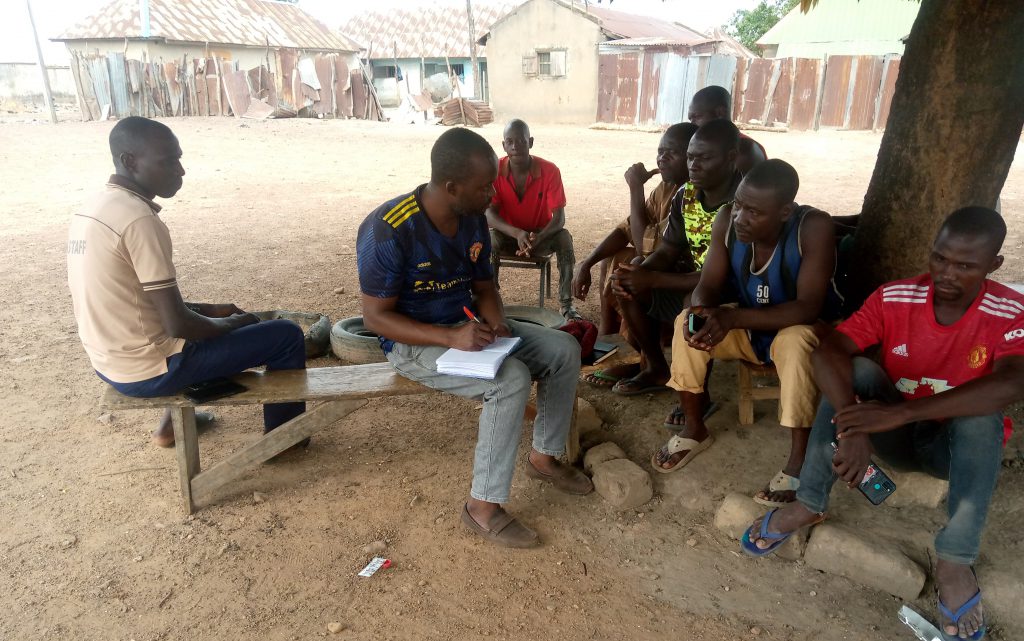The Nigeria Land Value Development Financing Baseline Study supported by the International Union for Land Value Taxation is a document that examines the experience of Nigeria’s Land Value Development Financing using the six Area Councils in the Federal Capital Territory (FCT) namely, Abaji, Abuja Municipal, Bwari, Gwagwalada, Kwali, and Kuje Area Councils as a pilot study.
In the six Area Councils studied, there is general acceptance among the people that there is a need for those who own lands to pay (Ground Rents) land tax. However, they are concerned that the prevalent communal land tenure system makes it difficult for people to pay Ground Rent.
Information from the Area Council officials revealed that disagreement between the Area Council Authorities and the Federal Capital Territory Administration (FCTA) in the past had frustrated efforts by the Council Authorities to charge and collect land tax. They disclosed that a court verdict in 2018 declared that the Council Authorities have no legal backing to collect land tax either in the form of tenement rate or Ground Rent. A situation they said frustrated efforts targeted at getting landowners in the Area Councils to pay Ground Rent.
Respondents within the categories of Community-Based Organizations, Non-Governmental Organizations (NGOs), Journalists, and Lawyers, agreed that there are legal frameworks that provide for Ground Rent in Nigeria. However, they pointed out that a communal land tenure system that does not encourage proper land title documents and registration makes it difficult for authorities to track land ownership and collect Ground Rent.
They are of the common opinion that authorities have not shown the political will to implement effective land tax in FCT and in the 36 states of the federation. They argued that it would be difficult for the authorities to allow for effective land tax in FCT because those who own taxable lands are often government officials and their friends.
The Area Council Authorities cannot implement effective land taxation because there is no Act from the National Assembly that gives them the legitimacy to carry out such responsibility. And they cannot rely on the bye-law made by them to charge and collect land tax. For the local council authorities to do that, the National Assembly must enact an Act that will give them backing to collect land tax. And until that is done, all actions by the Council Authorities regarding land tax collection remain null and void.
A common opinion among the people is that perceived mismanagement of public funds by the governments and their officials at all levels makes citizens not want to pay any form of tax including Ground Rent. The locals across the six Area Councils accused the government and its officials of mismanaging public resources meant for rural development. According to them, no amount of resources in the hands of the government and its officials will be deployed to community development, rather it will be diverted into private pockets. A situation they say does not motivate them to pay Ground Rents (Land Tax).
Notwithstanding the challenges confronting Land Value Taxation (Ground Rent) in the Area Councils, the people in the Council Authorities are eager and ready to pay Ground Rents if all necessary frameworks and logistics are put in place for smooth and successful implementation.
We found out that all the six Area Council Authorities find it difficult to influence the decision of Federal Capital Territory Authority (FCTA) regarding Land Tax. Often, they have no option but to follow FCTA’s decisions regarding Land Tax even when they do not feel comfortable with such decisions. They feel that if allowed to make bye-laws, that will give them the legal backing to fix and collect Land Rent without hindrance.
What to be done for successful Ground Rent in FCT
There are popular opinions among the people that three things must be done to achieve successful Ground Rent payment in FCT and these are as follows:
- The National Assembly should make a law that will give Area Council Authorities the legal backing to fix and collect Ground Rent (Land Tax). Without that, all efforts for successful Land Taxation in FCT will be in futility.
- Resources must be invested in educating and sensitizing the people, Lawmakers in the National Assembly, and the FCTA officials on the importance of Land Value Taxation (Ground Rents). According to them, it is only through strategic and sustained advocacies that the National Assembly will make a law that will give the Area Council Authorities the legal backing to fix and collect Ground Rent. And, that will be the legal framework for Ground Rents payments in the FCT Area Council Authorities.
- The locals including the Traditional leaders, Religious leaders, Youth leaders, Women leaders, community influencers, Community-Based Organizations (CBOs), the media, and revenue officials must actively participate in the design and implementation of all Land Value Taxation projects. According to them, that will give the locals ownership of the project and create room for greater impact and sustainability.
Baseline summary report by MAWA-Foundation

